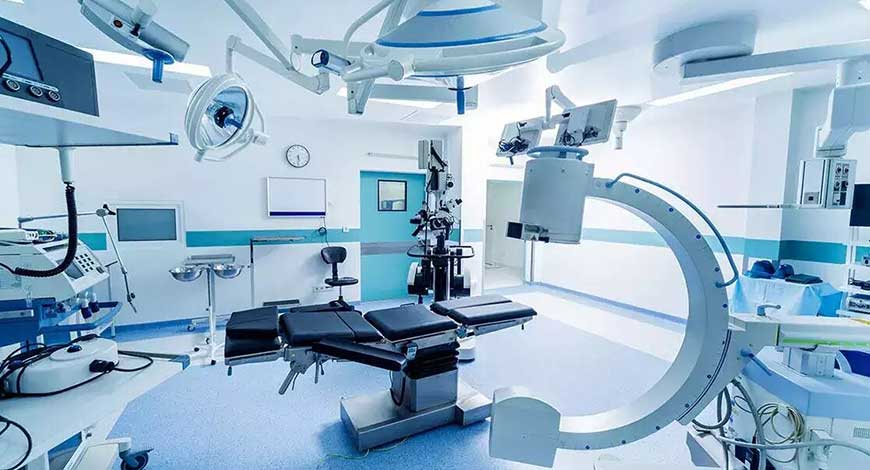Headlines of The Day
Parliamentary Committee criticizes DoP for continued dependence on medical devices imports

A Parliamentary Committee has criticised the Ministry of Chemical and Fertilizer over the fact that despite taking several initiatives to promote the medical device industry in the country, India is still highly dependent on the import of high-end medical devices like electronic equipment, advanced surgical instruments and In-Vitro Diagnostic (IVD) Reagents to the extent of 70 per cent for meeting country’s domestic requirements.
The committee’s attention has been drawn to various issues impeding the growth of the medical device industry, including a minuscule investment in research and development, fewer tax concessions, the problem of inverted duty structure for domestic manufacturers, low capital investment, long gestation period in the induction of new technology, lack of skilled manpower, less trained healthcare professionals, lack of industry-academia collaboration and limited price and quality regulation, which need immediate attention of the government.
“Medical devices is a sunrise sector, which is growing at a fast pace and its market in the country is expected to grow to USD 50 billion by 2030. It is, however, a matter of concern that, at present, 80 per cent of the sales of medical devices in our country comprise imported medical devices,” the committee chaired by Lok Sabha MP Shashi Tharoor said in its latest report.
The import value of high-end technology medical devices, including surgical instruments, electronic equipment and In-Vitro Diagnostic Reagents during 2019-20 was 180 USD million, 3647 USD million and 527 USD million respectively.
It is worth mentioning that the Department of Pharmaceuticals, which comes under the Ministry of Chemical and Fertilizer and looks after the medical device industry, launched various schemes to promote the medical device industry like Production Linked Incentives (PLI) and Promotion of Medical Device Parks in 2020.
Despite various schemes to promote the medical device industry, during 2022-23, the import value in these segments was increased to 210 USD million, 4884 USD million and 767 USD million respectively. During the same period, the quantum of exports in these segments was only 72 USD million, 1335 USD million and 191 USD million respectively.
Speaking to ETV Bharat, Kripanath Mallah, a member of the Parliamentary Committee on Chemicals and Fertilizers, said that there is a vast scope for the medical industry in the country. “Our government under the leadership of Prime Minister Narendra Modi also vouched to make India self-dependent as far as the medical device industry is concerned. Although we have taken several steps to promote the industry, emphasis should be given to the proper and timely implementation of the schemes,” said Mallah.
Even though the Department of Pharmaceuticals has taken certain schematic and non-schematic initiatives to promote the medical device industry in the country, since 2015, when the medical device was first added to its mandate, it has yet to play a deciding role in the promotion of the medical device industry.
“We hope that the Department will take all required measures to effectively and timely execute their initiatives for promotion of the medical device industry and create a well-developed manufacturing ecosystem to counter the domestic manufacturing disabilities and strengthen domestic manufacturers competitiveness in the international market,” the report stated.
Significantly, the Department of Pharmaceuticals launched several schemes for the ‘Promotion of Medical Device Parks’ besides setting up four medical device parks in Himachal Pradesh, Tamil Nadu, Madhya Pradesh and Uttar Pradesh with an outlay of Rs 100 crore each, for the establishment of common testing and laboratory facilities.
Although the first installment of Rs 30 crore was released to these States in 2021-22, it is ironic that even a modest amount of Rs 120 crore for four s remained unspent during 2022-23 and only Rs 89 lakh was utilised. Aware of this fact, the committee thinks that the whole scheme has no meaning if the funds allocated are not utilised by the respective states.
The Department of Pharmaceuticals has introduced various schemes for boosting the domestic manufacturing of medical devices, including assistance to the medical device industry for common facility centres, a scheme for the promotion of medical device parks, production linked incentive (PLI) scheme for promoting domestic manufacturing of medical devices and PLI scheme for pharmaceuticals.
Underlying the fact that there is an increase in the imports, especially, on the electronic equipment side and as well as on the surgical side, officials from the department, however, said that they are hopeful that in the coming years, with PLI and other interventions, will reduce the import dependency.
“Under the PLI scheme for Promoting Domestic Manufacturing of Medical Devices, with a financial outlay of Rs 3,420 crore and with the tenure from FY 2020-21 to FY 2027-28, financial incentives will be given to selected companies at the rate of five per cent of incremental sales of medical devices manufactured in India and covered under the four target segments of the scheme, for five years,” officials from the Department of Pharmaceuticals said.
Under the scheme, a total of 64 applications were received and 26 applicants have been approved with a committed investment of Rs 1330.44 crore and an expected employment generation of around 7,950 jobs. A total of 14 manufacturing plants have been commissioned till date for 36 products, officials said.
“Once the PLI applicants have started manufacturing, we asked about the different specifications. We shared that list both with the state governments as well as the Central procurement agencies so that there will be an assured market for them. So, we are making a provision that all the specifications are available to the state government and the Central government. Moreover, there is also a proposal that the PLI applicants can be considered as Class-II local suppliers concerning preference in public policy. There is a Make in India policy wherein we give the domestic manufacturers some advantages over the importers. So, under that, we want to cover all our PLI applicants so that they also have an assured market for their product being manufactured,” officials said. ETV Bharat












